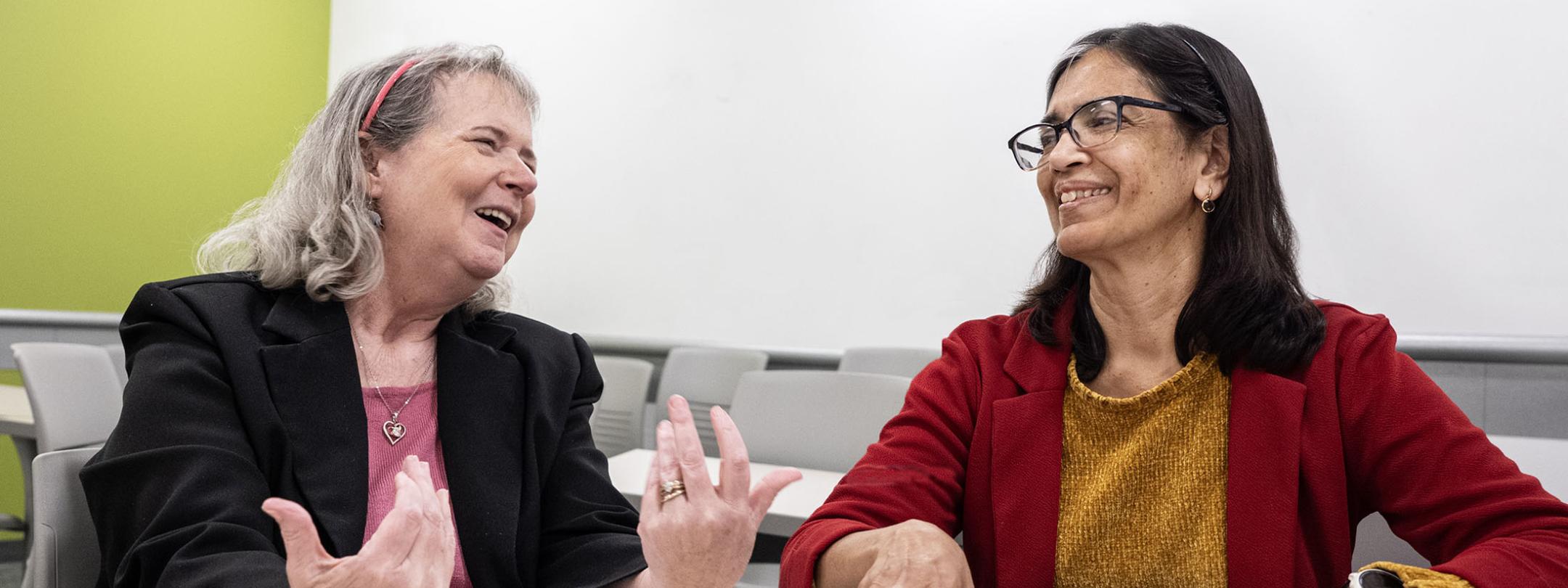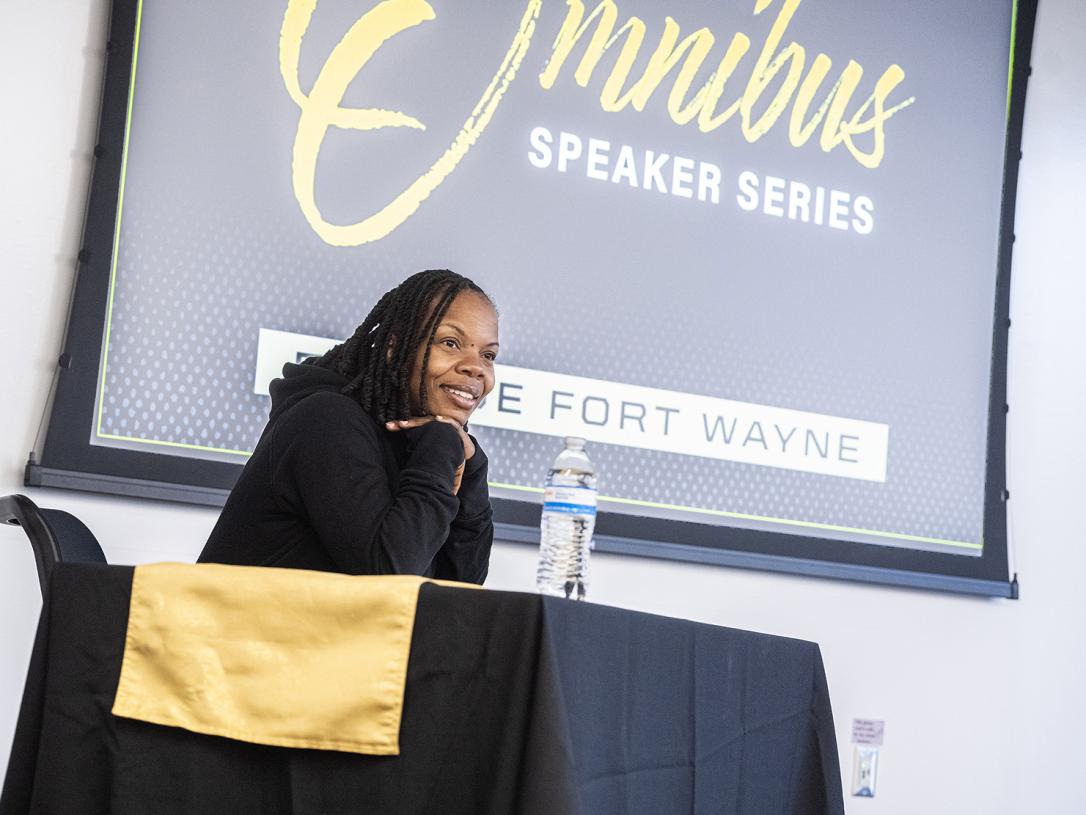
School of Education seeks to introduce autism concentration
By Blake Sebring
June 26, 2025
During seven years as a South Bend middle school special education teacher, Jennifer Castle has documented an increase in the number of students she works with who have autism diagnoses. After recently earning a master’s degree from Purdue University Fort Wayne, she reached out to her professors for advice and the latest trends teachers can utilize.
“Adding an autism concentration is not just timely—it is essential,” Castle said. “As autism diagnoses continue to rise and awareness grows, teachers must be better equipped with specialized knowledge and strategies to meet the complex needs of students on the spectrum.”
Jane Leatherman, associate professor and program coordinator of special education, and Rama Cousik, associate professor of special education, recently received approval to move forward with four classes at PFW focused on autism. They have always wanted to start a concentration to help teachers work with this unique student population.
“We hear the need in the community and amongst our students who are already teachers,” Cousik said. “We are listening to them.”
The duo will begin teaching four online, graduate-level courses starting Monday with Cousik’s “Autism Spectrum Disorders and Evidence Based Practices,” followed by Leatherman leading “Introduction to Autism Spectrum Disorders” during the fall semester. Two other classes will be offered later. Courses count for three credits each and are considered elective options in the graduate program.
The classes can be taken individually, and it is not required to have taken Cousik’s class before joining Leatherman’s offering.
According to the Centers for Disease Control and Prevention, the prevalence of 8-year-olds in the United States diagnosed with autism is now one in 31. In 2000, the rate was one in 150.
Before coming to PFW in 2011, Cousik started her teaching career in India and immediately developed an interest in learning more about autism after an early classroom experience. Recognizing symptoms in several students, she immediately asked administrators for more training. She has since worked with more than 300 families of children who have been diagnosed with autism.
“These children fascinate me,” Cousik said. “They often look like angels because they are so beautiful. They have that innocence about them, that purity, and we need to understand how to work with them and adjust to their perception of the world, which is unique.”
Leatherman serves as the board president for My Autism Ally, which she helped found five years ago. My Autism Ally is the largest nonprofit organization with an autism focus in northeast Indiana.
“I’m very excited about this,” Leatherman said. “My job here is to help the students be the best special education teachers they can be, and with this we not only get to help children, but we get to help their teachers.”
Cousik said the courses are designed to serve several academic disciplines besides teaching, such as psychology, communication disorders, or music.
Leatherman said she works with her current special education students every semester on teaching children with autism, but this will be an opportunity to provide more focus.
“While a general special education degree provides a solid foundation, it often lacks the depth required to address specific areas such as sensory processing differences, communication challenges, and behavior regulation,” Castle said. “Graduate students pursuing a master’s degree are already committed to deepening their expertise. Offering a focused autism concentration allows them to build evidence-based skills that translate directly into classroom practice, making their support for students more effective and meaningful.”
All courses are completely online and offered for eight weeks during the fall and spring semesters, and six weeks in summer.
For more information, email Leatherman at [email protected] or Cousik at [email protected].




